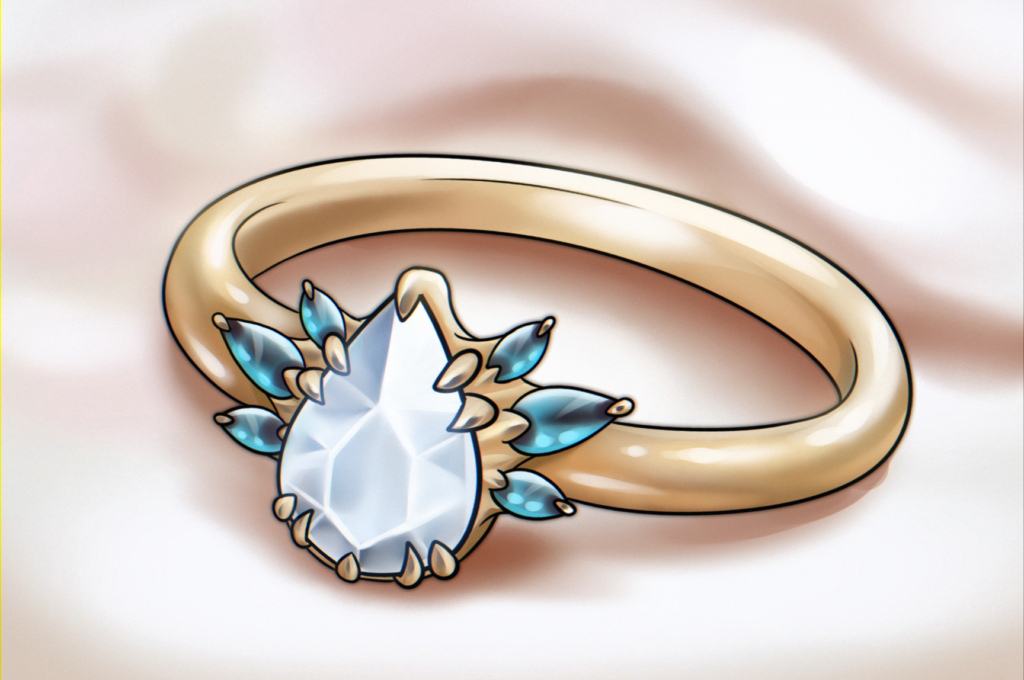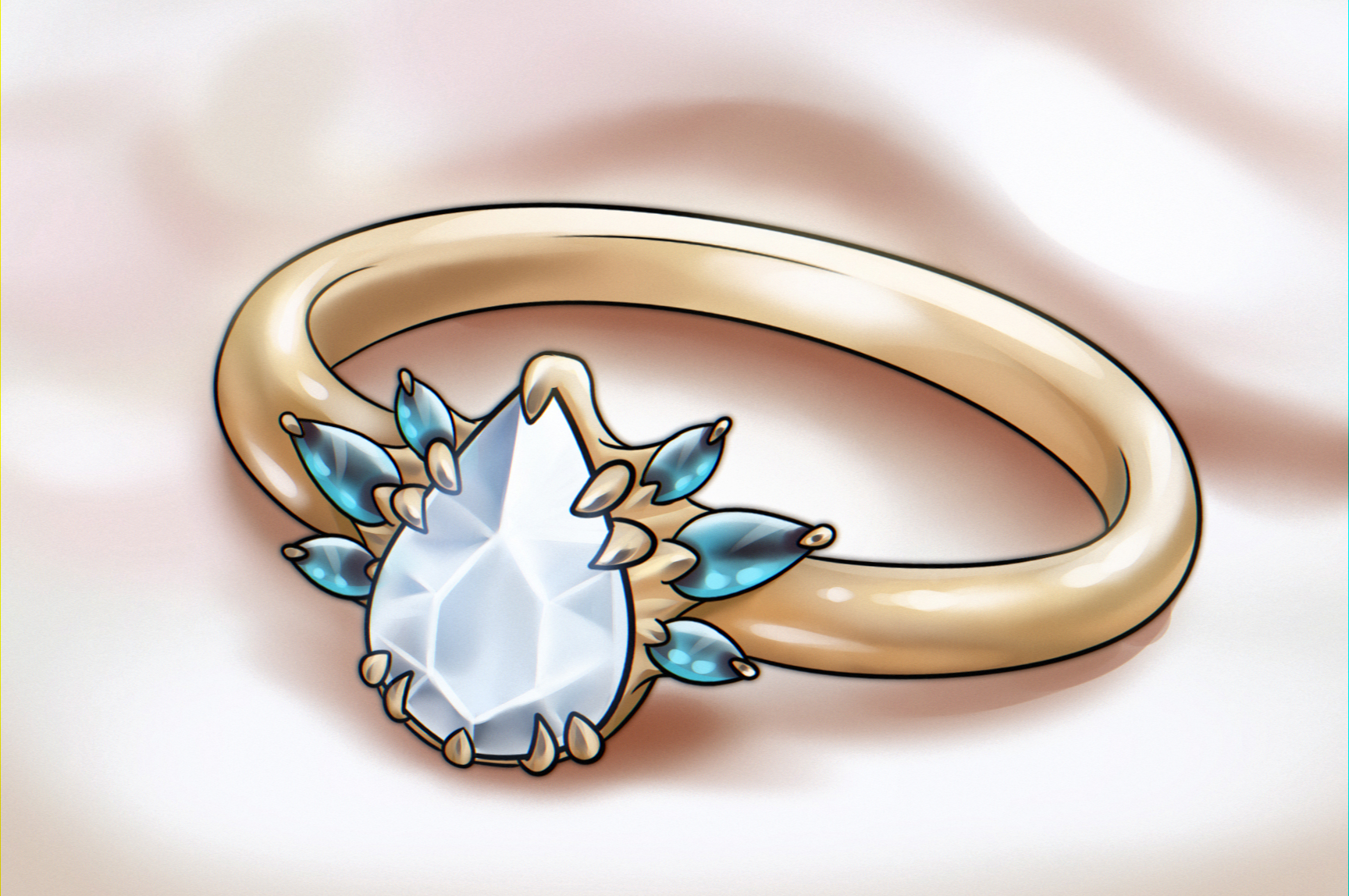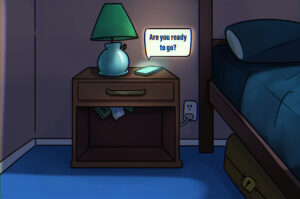Breaking up is never easy, especially when the relationship has come so far that a ring has been involved. In the moments of heartache and confusion that follow a breakup, it can be difficult to know what to do with the physical reminders of your relationship – particularly if it is an engagement or promise ring.
While it may not seem much compared to all you’ve lost, deciding who gets the ring after a breakup can be surprisingly contentious. With emotions running high in the aftermath of a breakup, couples must decide whether to keep or part ways with the ring – and it is not always an easy decision to make. So who gets to keep it? Let’s take a closer look at this complicated issue and explore potential solutions for couples facing this dilemma.
Understanding the Dilemma
The ring is a physical reminder of the love and commitment that was once shared between two people. When things go south in a relationship, this physical reminder can often be difficult to part with. With the average price of an engagement ring sitting around $5,000.00, it’s no surprise that couples going through a breakup may find themselves in a heated debate over who is entitled to keep it.
The ring can become an emotionally charged symbol of the relationship, with each party wanting to have control over it. The person who gifted the ring often wants to ensure its safe return, while the recipient may not necessarily want to part with something so meaningful.
Sometimes, both people feel entitled to the ring as compensation for the pain and emotional damage caused by the breakup. While in other cases, one person might believe that they are the rightful owner of the ring, so they should get to keep it. But this story also goes both ways; the giver thinks they own the ring because they paid for it, and the receiver thinks they are the owners because they received it as a gift, and the ring is now in their possession.
In the end, it isn’t easy to reach an agreement that satisfies both parties. It can be a stressful experience for either party trying to decide what should happen with the ring after a breakup. Ultimately, this can lead to a lot of confusion about who is entitled to keep it and what should be done if both parties want it.
What Do the Etiquettes Say?
According to traditional etiquette, the correct thing to do would be to return the ring to the giver if the couples break off an engagement. Why, you ask? Well, since the ring is a sign of a promise to marry, it does not become a rightful gift until the promise has been completed. The fact that the recipient wore or used the ring does not make them the owner.
However, this may not always be the case. Sometimes, the giver may decide to let the receiver keep the ring as a token of love and appreciation. This usually happens if both parties have an amicable relationship or are willing to part ways without hard feelings.
In addition, etiquette also dictates that any gifts received before the wedding should be returned once it is called off. The same goes for engagement gifts such as shower presents, and bridesmaids’ dresses – all items related to the wedding should be returned if it does not happen.
Enough Talk – What Does the Law Say?
It is important to remember that rings are treated as any other material possession in legal terms, meaning that couples will have to settle who keeps it according to property law rather than emotion. It may depend on who purchased the ring and whether there were any written agreements or contracts between the two parties.
There are two primary considerations when deciding who gets the ring in a breakup: whether the relationship was legally recognized (e.g., marriage) or informal (e.g., promise or pre-engagement).
In the case of marriage, the laws regarding the ring are clear as daylight. Once the wedding has taken place and the relationship becomes legally recognized, the ring becomes the property of the recipient fair and square. This means that if the marriage ends in divorce, the ring cannot be demanded back and remains the property of the recipient.
In contrast to marriage, engagement rings may be treated differently. An engagement or promise ring could be considered a promise to marry. This means the person who gave a ring owns it until the promise is completed. But the matter is not as simple and requires further probing. Since there are no clear-cut laws specifically mentioning engagement rings in Canada, the courts are left to take their own approach to determine the ownership of the ring after a breakup.
The No-Fault Approach
In the nineties, a man broke up with his fiancée, claiming she was no longer in love with him. But she was still in love with her engagement ring and decided she did not want to give it back. He sued, and the case was referred to one court after the other. He claimed that since the ring was a promise, a conditional gift for marriage, and the wedding never took place, the ring must be returned to him.
His ex took that position that she wanted to go through with the marriage, and he was the one breaking up with her, so it was his fault that the marriage wasn’t taking place, and she was not entitled to return the ring.
After much back and forth with the case, the court finally decided that deciding who was or wasn’t at fault could be painstaking and would needlessly complicate the matters further.
Eventually, they came up with the ruling that since the engagement is a promise to marry, the gift linked to it must be returned if the wedding does not take place. Irrespective of the circumstances. This is known as the “No Fault Approach,” in which the court doesn’t care who is at fault and only considers if the wedding took place.
Canada takes a No-Fault Approach to separations and divorce.
Ontario’s Marriage Act at S.33 specifically states: “If someone gives a gift to another person as a promise or on condition to get married, and the marriage does not happen for whatever reason, the court will not consider who was at fault when deciding the right of the giver on the gift.”
Although some courts may apply this law or a similar one to engagement rings, not every province has clear wording respect to recovery of gifts in contemplation of marriage. Alberta does not.
In Alberta, conditional gifts like rings are treated like any other property under the Family Law Act or the Matrimonial Property Act.
The Fault-Based Approach
In the United States, the laws are not as simple as some States still have the “Fault Based Approach” when deciding whose right it is to keep the ring. In this approach, the court may consider who broke up with whom and what circumstances led to it.
With this approach, the ring is still treated as a conditional gift. But the person who gets to keep it is decided based on the circumstances. If one of them breaks off without reason, their ex might get to keep the ring.
If there is no evidence of cheating or fraud, and the recipient breaks up and calls off the marriage, the ring will go back to the giver. However, if the giver calls the wedding off for no significant reason, they may be out of luck in a court that follows that fault-based approach.
The fault-based approach revolves around the concept that you cannot go back on your promise without facing the consequences.
If the partners mutually decide to call off the wedding, most courts will treat it as a no-fault case, and the ring will return to the giver.
Even though Canada does not use this approach, it is important to note that each case requires its legal analysis as there are no clear-cut one single rule that applies to all Canadians about the ownership of engagement rings in Canada. Therefore, if both parties disagree on who gets the ring in a breakup, they may require legal advice to figure out how to sort out the ring and any other property issues. Legal professionals have special training and experienced in handling such cases and can help you negotiate a win-win with your ex.
Treating Rings as Compensation
In many situations, such as ones involving a binding Agreement or Matrimonial Property Statement, the ring is seen as an item of compensation. The ring is assigned a monetary value and award it to one party as a form of settlement. The amount awarded can be set by using the purchase price of the ring, the current market value or some other amount the parties decide is fair. If they cannot agree, it’s ultimately up to the court to make the big decisions.

Practical Tips for Handling the Ring After a Breakup
No matter what the courts might decide, it is a good idea to follow some practical steps when you and your partner face a split.
Prepare a Formal Agreement
Truth be told! No couple wants to think about breaking up when proposing or sharing expensive gifts like an engagement ring. But sometimes, things happen for which we can’t plan. To ensure both partners are on the same page, creating a formal agreement that outlines who gets the ring in case of a split is recommended.
This document should also include details of who will be responsible for returning or exchanging the ring. It should also state whether one partner is entitled to any compensation for giving up their right to the ring and any other family property that might be applicable too.
Be Sensitive
Breakups can be heartbreaking and emotionally draining for both parties involved. During an already uncertain time, it’s important to remain sensitive toward each other’s feelings and try to come to an understanding regarding the engagement ring peacefully. This way, conflict can be avoided and hopefully there can have some closure.
Seek Professional Advice
If both parties cannot come up with an agreement on their own, the best step will be to seek legal advice and have a professional handle the situation. This way, there won’t be any bias or favoritism, and the process will remain fair for all involved.
Seeking professional advice is one of the best and safest ways to come to a mutual understanding when it comes to who gets the engagement ring in case of a breakup. Lawyers can help both parties understand their rights and ensure that the process of deciding who gets the ring remains fair and unbiased.
Only a family lawyer can properly determine how the law might specifically apply to each case. Experienced lawyers know laws in and out as well as the best way to approach them with the ring dispute. Lawyers can help sort out the details and can also provide helpful information regarding what could happen if one party decides not to return the engagement ring; this includes potential court orders or even temporary restraining orders or protection orders, if necessary.
Final Thoughts
There is no hard and fast answer when it comes down to who gets the ring in a breakup. Every situation is different and requires an in-depth analysis. Sometimes, it is better to trust legal professionals in determining the outcome of the conflict. These professionals have years of experience handling such cases and know how to create a win-win out of most situations.
Regardless of the outcome, it is essential to remember that engagement rings should be treated with respect and handled with care. All parties involved must understand their rights and responsibilities to reach a fair agreement. With mutual understanding and professional legal advice, couples can make informed decisions about who gets the ring peacefully and without unnecessary conflict.
The decision of who gets the engagement ring in case of a breakup might not be easy, but understanding the legal and moral rights can help make it simpler and less stressful for everyone.





